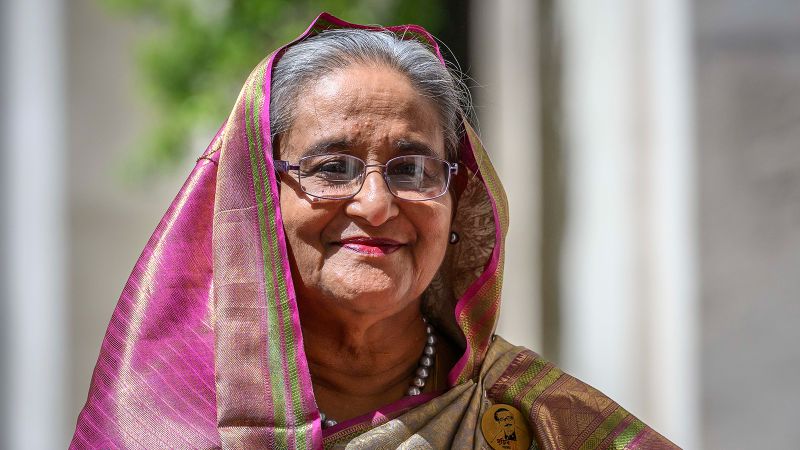A special tribunal in Bangladesh has indicted former Prime Minister Sheikh Hasina on charges of crimes against humanity, stemming from a mass uprising that resulted in the deaths of hundreds of students last year. The tribunal, led by Justice Golam Mortuza Mozumder, accepted the charges on June 5, 2024, against Hasina, former Home Minister Asaduzzaman Khan, and former police chief Chowdhury Abdullah Al-Mamun. Both Hasina and Khan are being tried in absentia.
The tribunal’s decision has sparked significant controversy. Hasina’s political party, the Awami League, labeled the process a “kangaroo court,” asserting that the current government is manipulating the judiciary for political gain. The interim government, led by Nobel Peace Prize laureate Muhammad Yunus, had previously requested India’s assistance in extraditing Hasina, who has been in exile since August 5, 2023. As of now, India has not responded to this request.
Al-Mamun, who was present at the tribunal, pleaded guilty to the charges and expressed his willingness to testify against his former associates as a state witness. Chief Prosecutor Mohammad Tajul Islam confirmed that Al-Mamun’s plea to act as an “approver” was accepted by the tribunal. The prosecution presented a variety of evidence, including a leaked audio recording purportedly featuring Hasina, to substantiate their claims.
The tribunal scheduled August 3 for the prosecution’s opening statement and August 4 for witness testimony. Despite the ongoing trial, a petition filed by Amir Hossain, the state-appointed lawyer for Hasina and Khan, to dismiss their names from the case was rejected.
Awami League officials have accused the Yunus administration of undermining public trust in the judicial system, asserting that the tribunal is a tool for silencing dissent. The party’s statement condemned the indictment against Hasina and characterized it as part of a broader campaign against political opposition.
The prosecution has outlined five specific charges against Hasina, claiming she orchestrated actions that led to mass killings, injuries, targeted violence against women and children, the burning of bodies, and the denial of medical assistance to those injured during the protests. The tribunal describes her as the “mastermind, conductor, and superior commander” of these alleged atrocities.
The interim government has taken steps to limit the influence of the Awami League by banning the party and amending laws to facilitate the prosecution of its members for their actions during the uprising. The U.N. human rights office previously estimated that up to 1,400 people may have died during the crackdowns on student-led protests against Hasina’s regime in the weeks leading up to her ousting.
In a separate legal matter, the tribunal recently sentenced Hasina to six months in prison for contempt of court. This ruling was based on her alleged comments about having a “license to kill” regarding the cases against her, which were revealed in another leaked audio recording.
The tribunal, originally established by Hasina in 2009 to address crimes related to Bangladesh’s 1971 independence war, has faced criticism for perceived biases, particularly against the Jamaat-e-Islami party. Under Hasina’s leadership, the tribunal has been used to try various politicians for their conduct during the war.
As the situation continues to unfold, the implications of the tribunal’s decisions are likely to resonate throughout Bangladesh’s political landscape, raising questions about accountability and justice in a country still grappling with its past.
